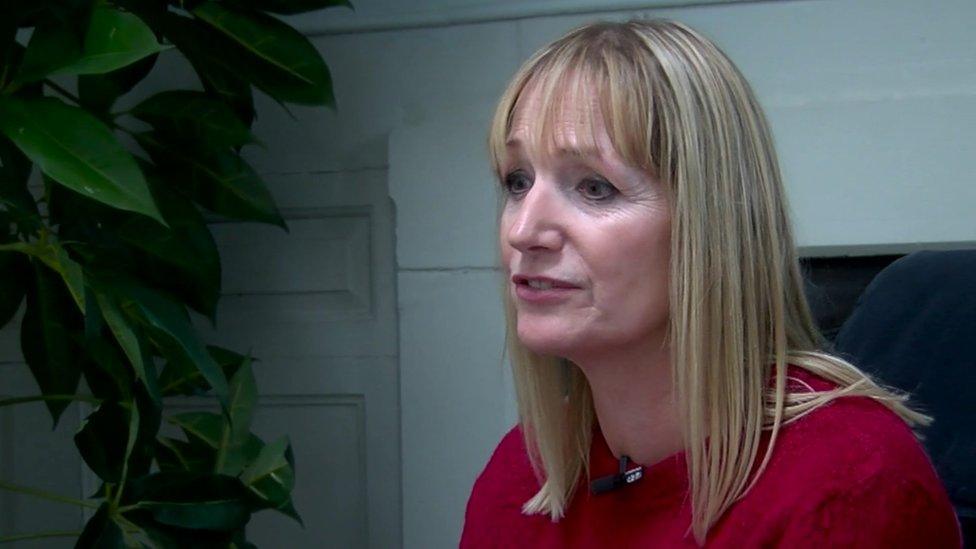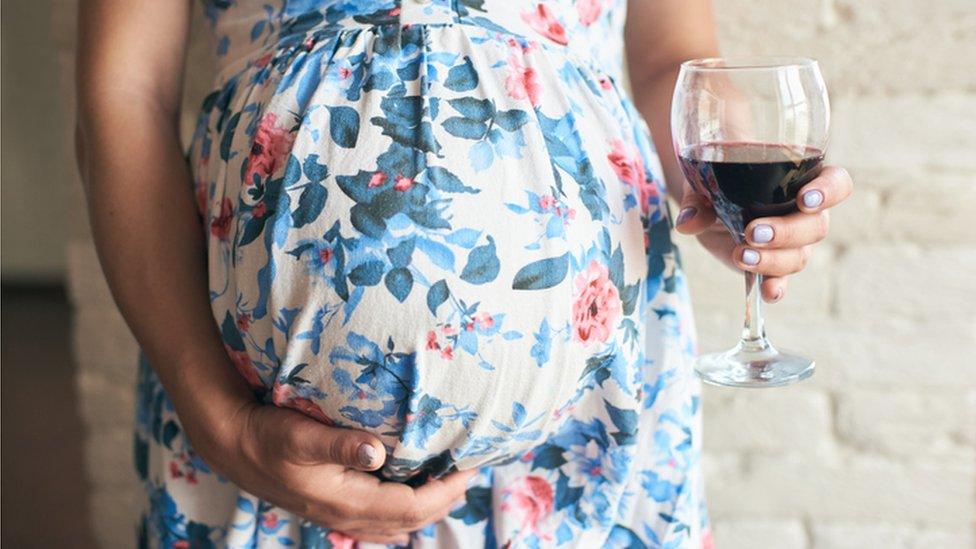Better diagnosis of FASD in children needed, adoptive mum says
- Published

Adoptive mum Amanda said both her sons have FASD
An adoptive mother is calling for the NHS to improve its diagnosis for children exposed to alcohol in the womb, so their families can be helped.
Amanda Boorman's two sons have Foetal Alcohol Spectrum Disorder (FASD) but they were not diagnosed correctly.
She said: "This is a brain and body condition that is lifelong so really the professionals need to step up."
Somerset NHS Foundation Trust has said it wants to provide the best possible care for affected families.
Foetal Alcohol Spectrum Disorder, external (FASD) covers the various health and mental issues which can affect children.
The government has published a paper, external on the health needs of FASD which has also stated that "diagnosis is complicated" and there is no specific test that can be taken.
'Increase understanding'
A spokesperson for the Department for Health and Social Care said: "We are committed to reducing future cases of Fetal Alcohol Spectrum Disorder (FASD) and we have asked NICE [National Institute for Healthcare Excellence] to produce a Quality Standard in England for FASD to help the health and care system improve diagnosis and care of those affected.
"We have also published England's first Fetal Alcohol Spectrum Disorders Health Needs Assessment to improve the lives of families living with it and increase understanding amongst clinicians and policy makers."
Mrs Boorman, from Brent Knoll in Somerset, said: "There's no way an adoptive parent should ever have to go to a chief executive of a hospital and say 'what is your strategy for diagnosing FASD?'
"What needs to happen is that clinical commissioning groups, the boards of those, chief executives in hospitals, directors of children's services, social care and education need to be much more proactive.
"What we've seen is reactive or just not really knowing - it's complete ignorance."
'Emotional outbursts'
She added that while both her sons have the condition, neither of them have the facial features associated with FASD.
She said had they been diagnosed correctly earlier, her family would have been able to access more support for her sons.
"They came to us when they were one and two, and to start with there weren't many issues.
"There were a few little things but really it was when they hit pre-school, there were some extreme emotional outbursts, dysregulation (poor ability to manage emotions), lashing out and random impulsivity, problems with other children, that kind of thing," she said.
A spokesperson for Somerset NHS Foundation Trust has said: "Foetal Alcohol Spectrum Disorder is now becoming more recognised and we are working with our health, education and social care partners to improve access to assessment and ongoing management for our families.
"We have used feedback from Amanda's experience of our children's community service to improve communications between families, our colleagues and multi-disciplinary health and social care professionals."
The NHS advises against taking alcohol or illicit substances during pregnancy as it can risk the health of the unborn baby.

Follow BBC West on Facebook, external, Twitter, external and Instagram, external. Send your story ideas to: bristol@bbc.co.uk , external
Related topics
- Published9 September 2021

- Published10 November 2019
